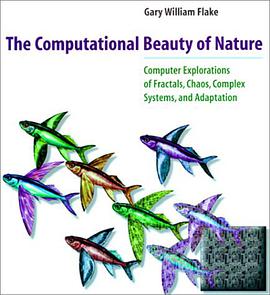

具体描述
"Simulation," writes Gary Flake in his preface, "becomes a form of experimentation in a universe of theories. The primary purpose of this book is to celebrate this fact."In this book, Gary William Flake develops in depth the simple idea that recurrent rules can produce rich and complicated behaviors. Distinguishing "agents" (e.g., molecules, cells, animals, and species) from their interactions (e.g., chemical reactions, immune system responses, sexual reproduction, and evolution), Flake argues that it is the computational properties of interactions that account for much of what we think of as "beautiful" and "interesting." From this basic thesis, Flake explores what he considers to be today's four most interesting computational topics: fractals, chaos, complex systems, and adaptation.Each of the book's parts can be read independently, enabling even the casual reader to understand and work with the basic equations and programs. Yet the parts are bound together by the theme of the computer as a laboratory and a metaphor for understanding the universe. The inspired reader will experiment further with the ideas presented to create fractal landscapes, chaotic systems, artificial life forms, genetic algorithms, and artificial neural networks.
作者简介
目录信息
读后感
评分
评分
评分
评分
用户评价
相关图书
本站所有内容均为互联网搜索引擎提供的公开搜索信息,本站不存储任何数据与内容,任何内容与数据均与本站无关,如有需要请联系相关搜索引擎包括但不限于百度,google,bing,sogou 等
© 2025 book.wenda123.org All Rights Reserved. 图书目录大全 版权所有




















